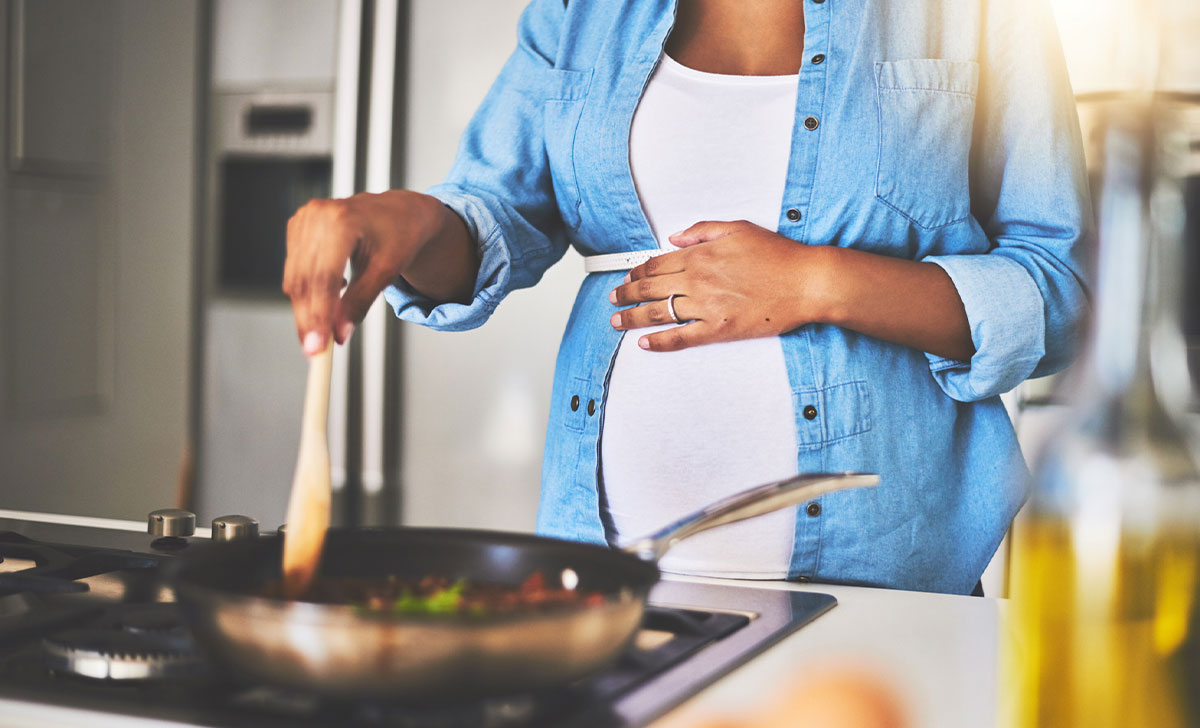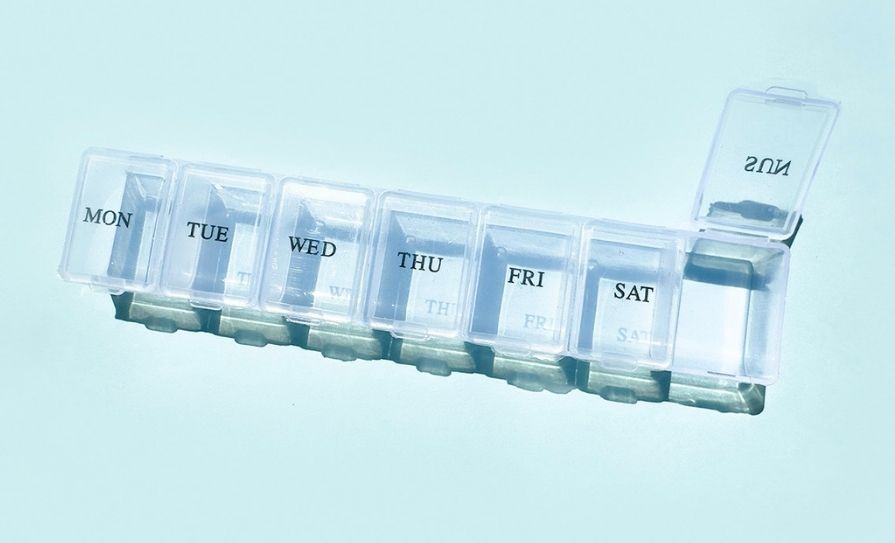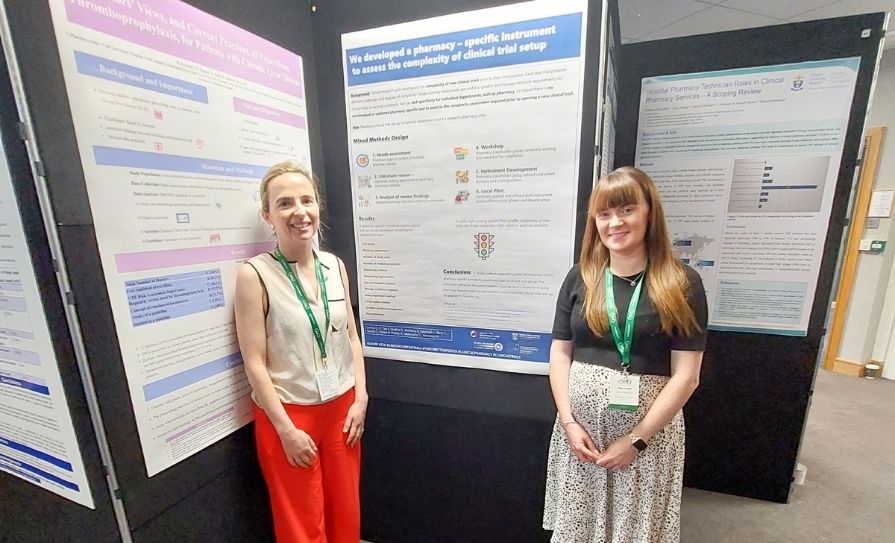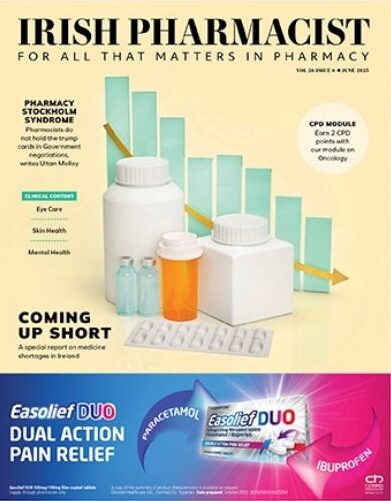Whilst folic acid has long been recognised as important for baby’s health during pregnancy, there is growing consideration being given to the need for a comprehensive and holistic approach to nutrition in pregnancy to safeguard mother’s and baby’s health. It is also increasingly recognised that care for mother and baby should begin before pregnancy, and subsequent nutritional needs after the baby is born should also be considered.
Bord Bia, the Irish Food Board, recommends that women who are already eating a healthy and balanced diet should only need to make small adjustments once they become pregnant. However, those with an unhealthy diet or people who are unable to satisfy their nutritional needs for other reasons may need to supplement their intake of essential vitamins and minerals. This can be particularly applicable during the last three months of pregnancy, when the baby grows rapidly and nutritional demands are increased.
The realisation of the importance of folic acid supplementation to prevent neural tube defects has been a revolution in pregnancy care. Pharmacists and other healthcare professionals should recommend that these supplements should be taken at least three months before a woman becomes pregnant, and up until the 12th week of pregnancy.
IRON
For mothers who suffer with anaemia, it is particularly important to supplement with iron. A 2019 study published in Annual Reviews in Nutrition noted that iron deficiency is the most common micronutrient deficiency in the world, and disproportionately affects pregnant women and young children. Iron deficiency during pregnancy can result in neurodevelopmental problems for the child, and potential immune system dysfunction and can cause negative effects on pregnancy outcomes in women. However, over-supplementation of iron can cause its own problems and therefore, additional iron should be taken under the guidance of a healthcare professional.
A study published this year in the journal Nutrients looked at the associations between the maternal total, dietary, and supplemental intakes of zinc, copper, and selenium during pregnancy, with congenital heart defects (CHDs). The hospital-based, case-control study suggested that higher intakes of zinc and selenium from diet and supplements during pregnancy may reduce the risk of CHDs. In addition, high intakes of zinc and selenium during pregnancy seem to have an additive effect on the association with CHDs, wrote the authors.
Mothers-to-be will need the advice of a pharmacist when it comes to navigating the minefield of nutrition during pregnancy — sometimes, the adage of ‘too much of a good thing’ rings true. The NHS in the UK cautions that mothers-to-be should not take cod liver oil or any supplements containing vitamin A (retinol) when they are pregnant, as this may harm the baby. However, the NHS does recommend 400 micrograms of folic acid every day, as well as a daily vitamin D supplement. The NHS also recommends an adequate amount of vitamin C during pregnancy to protect cells, and sufficient calcium intake to safeguard the baby’s bone and teeth health.
Mothers-to-be who are vegetarian or vegan may require extra help in achieving the necessary level of nutrients during pregnancy, when so many demands are placed on a woman’s body. This can be particularly true when it comes to iron and vitamin B12. People whose diet is restricted for religious reasons or due to a food intolerance can also be vulnerable to deficiencies, and some mothers may be also taking medications that interfere with their intake of nutrients. A pharmacist, GP or dietitian can help with advice, but pharmacists are best-placed to help as they are the most accessible healthcare professional in the community.
While the nutritional needs of women and their babies during pregnancy are complex and can vary depending on individual circumstances, a carefully-planned diet can usually provide enough nutrients for expecting mothers, unless there are other factors at play. The HSE suggests using the Food Pyramid as a guide, but warns against the old saying that a pregnant mother is ‘eating for two’, and that a normal amount of food and a balanced range of nutrients is usually sufficient.
SUPPLEMENTATION
However, for those who struggle to get the required amount of nutrition during pregnancy, supplementation under the guidance of a pharmacist will help to achieve the best outcomes possible. A 2020 study in Nutrition Reviews looked at the safety and efficacy of supplements in pregnancy, including zinc, magnesium, Omega-3, iron, iodine, calcium, and vitamins, among others.
The authors urged that pregnant women should try to attain sufficient nutrients from their diet but for those unable to do so, supplementation means “incidence of negative maternal and fetal outcomes may be reduced in high-risk pregnancies,” they wrote. “Given the high burden of pregnancy complications, nutritional supplementation is a safe and cost-effective way to reduce risk of outcomes such as preeclampsia, GDM, and SGA, amongst others.”







